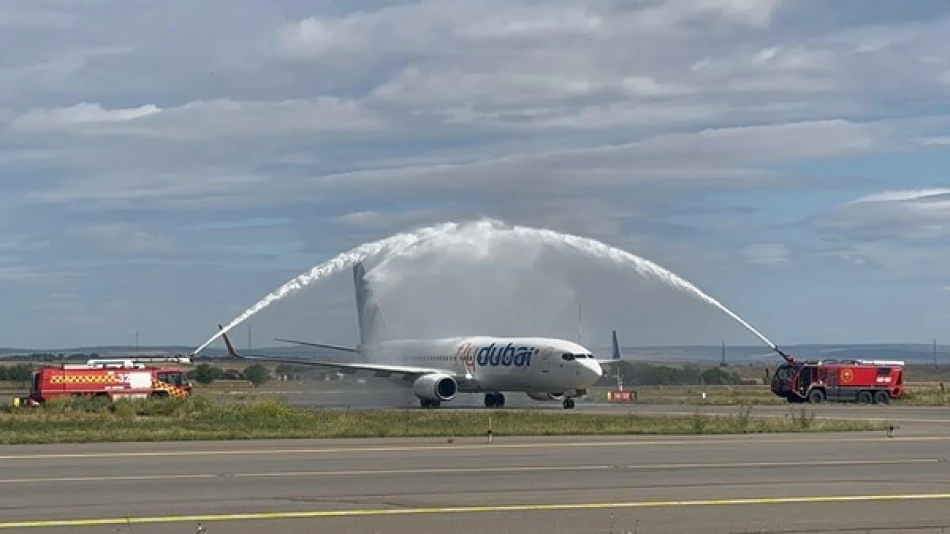
Fly Dubai Expands to Romania, Launches Flights to Iasi Airport
Flydubai Expands Romanian Network with Direct Flights to Iași, Signaling Eastern Europe Growth Strategy
Flydubai has launched twice-weekly direct flights to Iași, Romania, becoming the first UAE carrier to serve the northeastern Romanian city. The move, coupled with increased frequency to Bucharest, reflects the airline's aggressive expansion into underserved Eastern European markets where demand has surged 16% annually since 2012.
Strategic Market Expansion in Romania
The Dubai-based low-cost carrier now operates two destinations in Romania, with Iași joining its established Bucharest route. Flydubai is simultaneously boosting Bucharest services from three weekly to three daily flights, bringing total weekly capacity to Romania to 21 flights.
This expansion comes as Gulf carriers increasingly target secondary European cities bypassed by major European airlines. Iași, with a population of over 290,000, serves as a regional hub for northeastern Romania and neighboring Moldova, offering significant catchment potential for both business and leisure travel.
Impressive Growth Metrics Drive Expansion
Jehoon Afandi, Flydubai's Senior Vice President of Commercial Operations and E-commerce, highlighted Romania's importance as a growth market. Since launching Romanian operations in 2012, passenger numbers to Bucharest have grown at a remarkable 16% annual rate, justifying the dramatic frequency increase from three weekly to 21 weekly flights across both cities.
This growth trajectory mirrors broader trends in Gulf-Europe connectivity, where UAE carriers have capitalized on Dubai's position as a global hub connecting Europe with Asia, Africa, and the Indian subcontinent.
Market Implications and Competitive Dynamics
Flydubai's Romanian expansion reflects several strategic advantages. The airline faces limited direct competition on the Dubai-Iași route, while offering Romanian travelers seamless connections to over 95 destinations across the Middle East, Asia, and Africa through Dubai International Airport.
For investors and aviation analysts, this move demonstrates how low-cost carriers can profitably serve thin routes that legacy airlines might avoid. Romania's growing economy, EU membership, and substantial diaspora in the Gulf region create sustainable demand fundamentals.
Regional Airport Development
Romeo Vatra, General Manager of Iași Airport, emphasized how the new service enhances the airport's international gateway status. This partnership exemplifies how secondary airports can attract Gulf carriers by offering lower costs and operational flexibility compared to congested major hubs.
The inaugural flight received the traditional water cannon salute, marking a significant milestone for northeastern Romania's connectivity to the Middle East and beyond. This development could stimulate business investment and tourism flows between the regions, particularly benefiting Romania's growing tech sector and Dubai's position as a regional business hub.
Most Viewed News

 Layla Al Mansoori
Layla Al Mansoori






